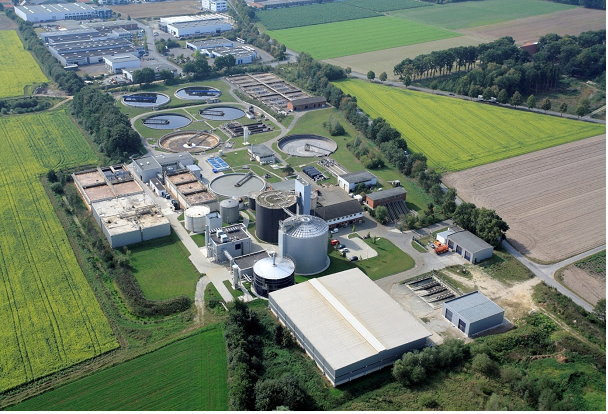43rd Public Lecture Series "Water Talk Lusatia - How to Continue with Water in the Region?"
Wastewater treatment is necessary for the protection of surface water and groundwater. Among other things, energy and chemicals are required for treatment, and structures of considerable dimensions must be built for wastewater treatment. Nitrous oxide (N2O) is released in the biological stage and methane (CH4) from the digester effluent. These two emissions account for about half of the CO2 equivalents(CO2 footprint) of the entire wastewater treatment process. In this respect, wastewater treatment results in an environmental impact. A first goal must therefore be to reduce the ecological footprint of existing systems or new systems to be built by optimizing processes.
For the determination and comparative evaluation of the energy demand of a specific wastewater treatment plant, there are standardized process procedures to identify optimization options. The procedure of these potential studies, which are often also a prerequisite for applications for state subsidies, will be presented in the course of the lecture. Measures for energy and process optimization derived from the potential studies will be explained using practical examples from planning and operation. Among other things, innovative processes are presented with which an increased production of sewage gas can be achieved in conventional digesters or the emission of CH4 can be minimized.
In addition to energy, municipal and industrial wastewater contain a wide range of constituents for which a recycling market is basically available. These include the nutrients phosphorus and nitrogen, and, depending on the wastewater origin, recyclable materials such as lignin and phenol, or salts from zero liquid discharge (ZLD) wastewater recycling plants. Furthermore, biomass used for wastewater treatment can be used to produce raw material for the production of recyclable plastics. Developments in this area will be presented during the lecture.
Water itself is to be evaluated as a raw material. Due to climate-related changes in precipitation, the topic of water recycling has come into focus for municipalities, industry and agricultural, horticultural and or forestry use. Current projects are presented in this context.
A feasibility study commissioned by the BMUV for the development of a research and demonstration field in the Lusatian mining area is currently working out which technical developments should be taken into account. The topic of recycling the valuable materials contained in wastewater is one of the focal points of the project. An overview of the upcoming project will be given during the lecture.
Link for livestream:
We recommend the option "Join via browser", because then no further software needs to be installed on your system.
Date comment:
Organizer: BTU Cottbus-Senftenberg and Wasser-Cluster-Lausitz e.V.
Place: Lecture hall 1 as well as Livestream
Speaker: Prof. Dr.-Ing. Peter Hartwig, aqua consult Ingenieur GmbH
Venue
Hörsaal 1
Lehrgebäude 1A
(LG 1A)
Zentralcampus
Konrad-Zuse-Straße 1
03046 Cottbus

